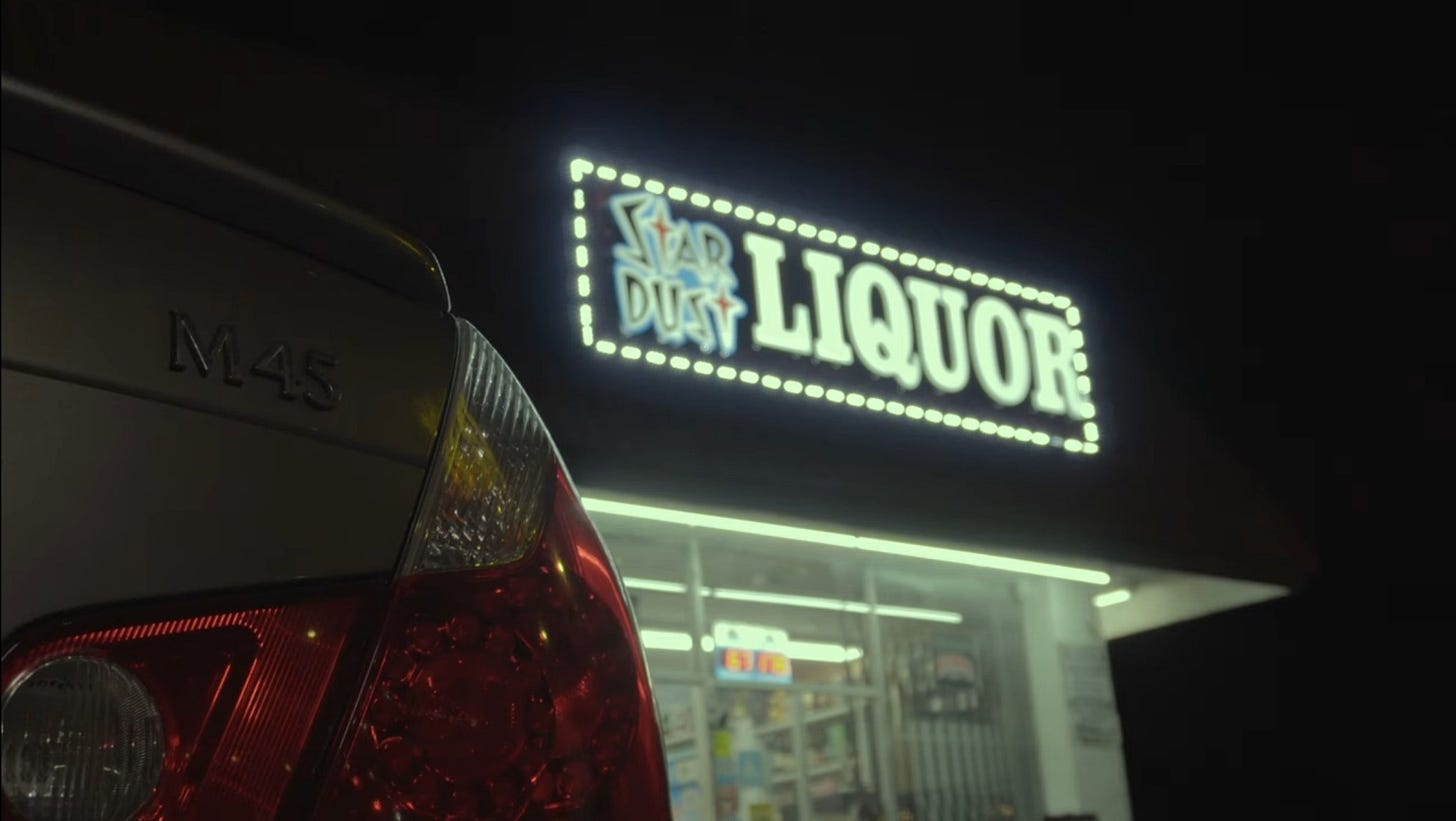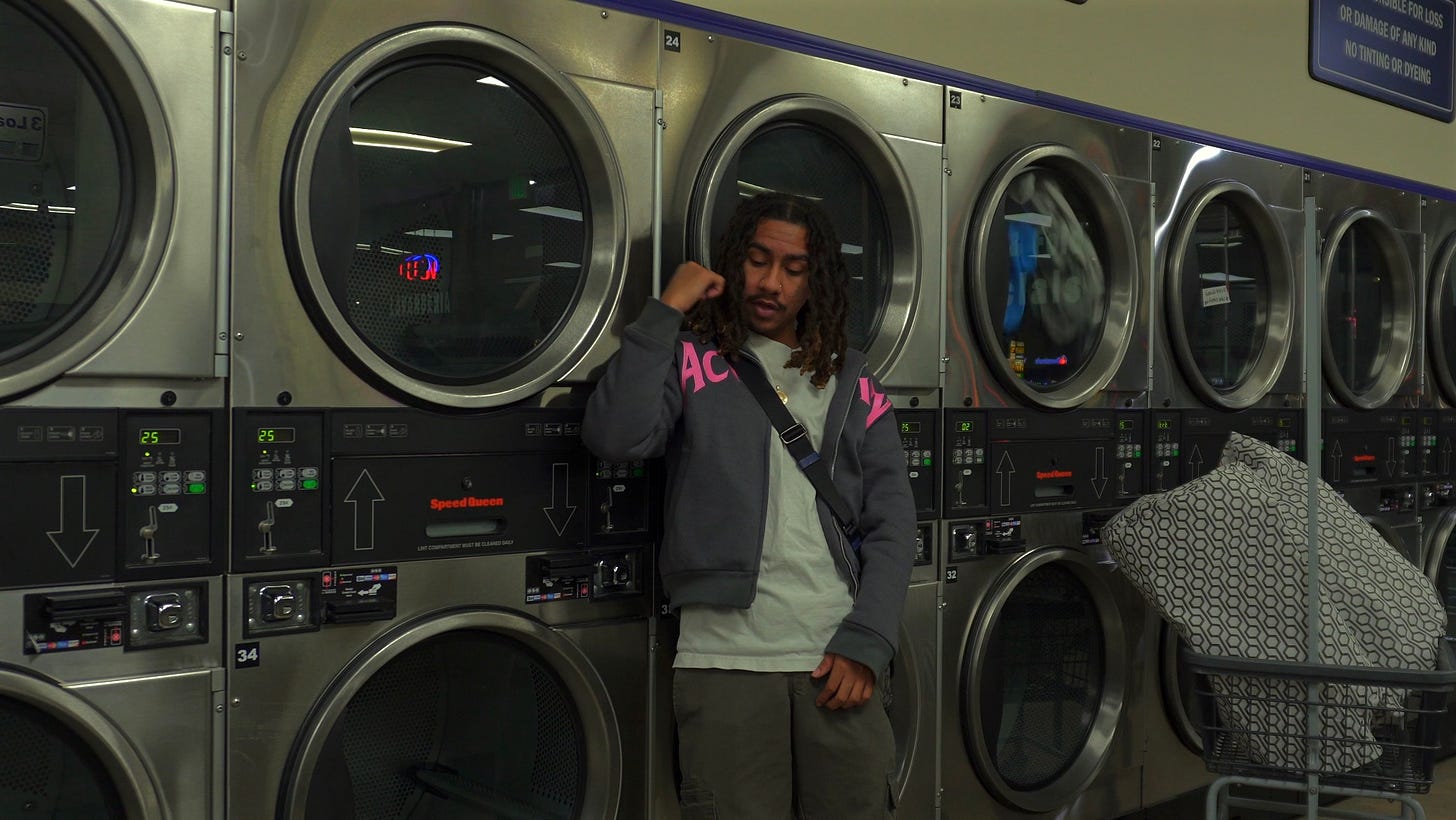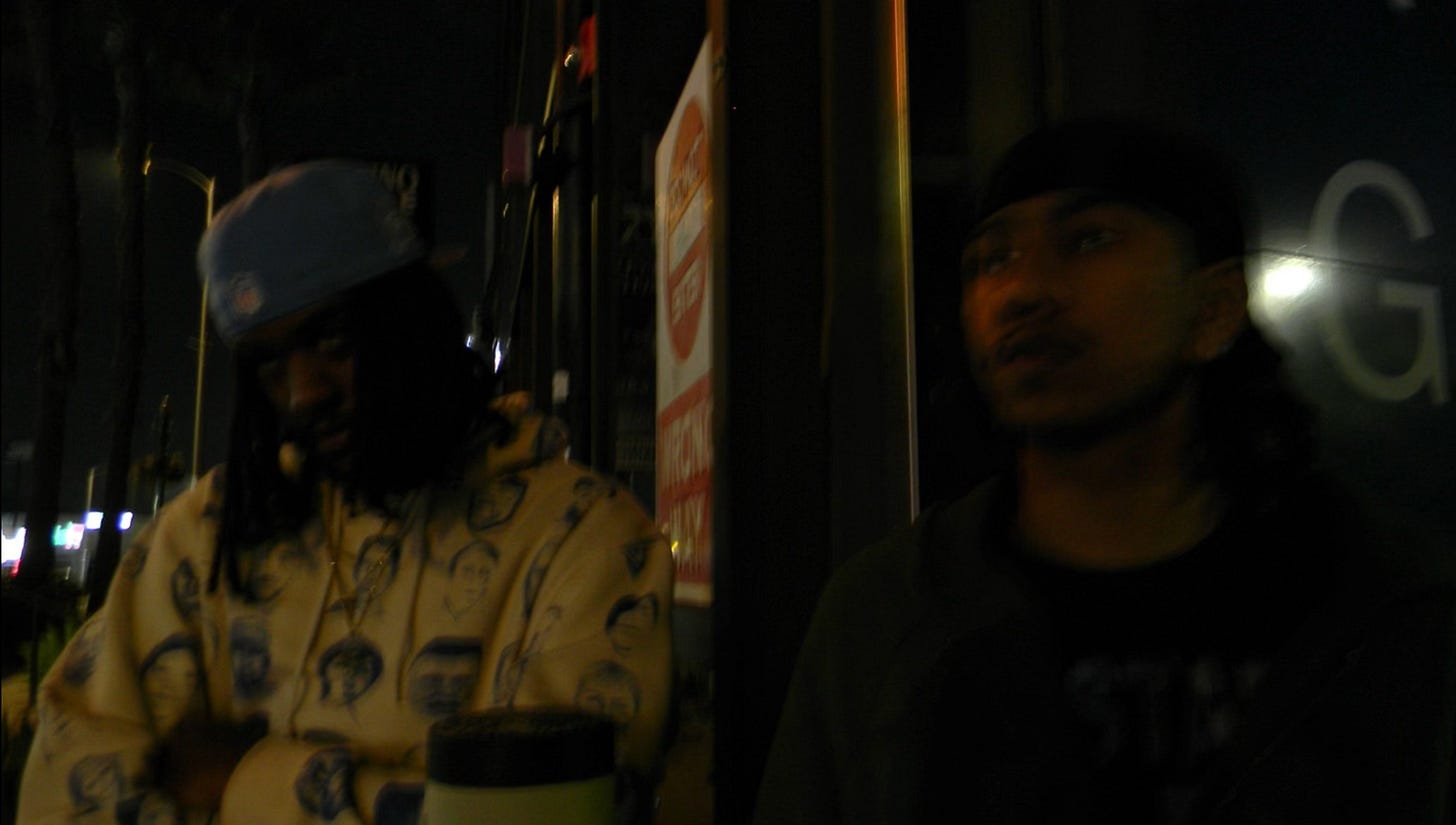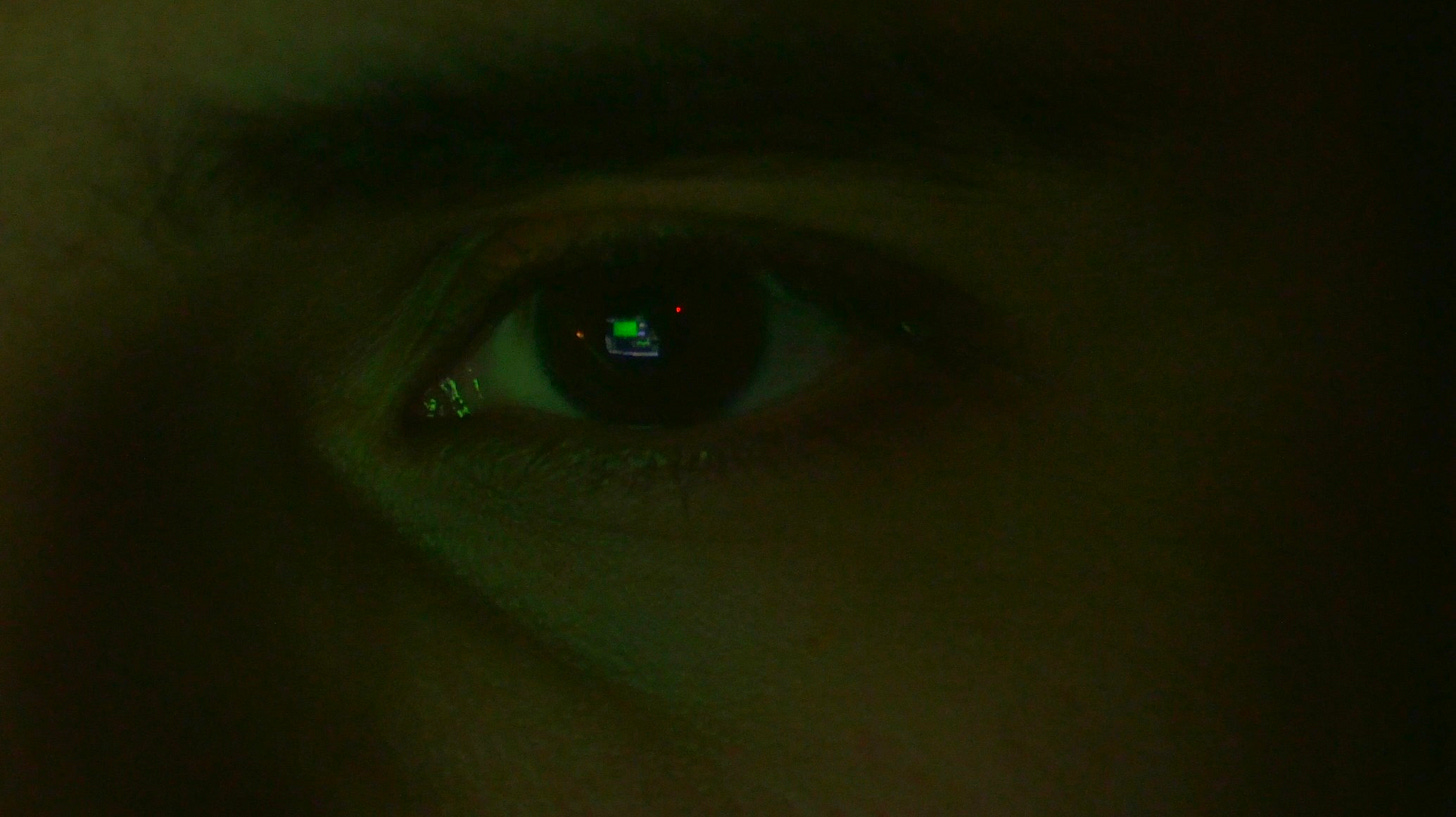A Keen Eye For Great Shots: Interviewing RAWB Visuals
This interview was conducted by Jake Perkins. It was lightly edited for length and clarity.
Before beginning this interview, I have to explain how it came about. This was the first interview I ever conducted. I always felt that I was good at talking to people, especially about themselves and emotions. Recently, I started working on a little side project. I wanted to create a full-fledged magazine to demonstrate my skills—like an Extended Play (EP)—in the hopes of adding it to my portfolio to help land a cushy Graphic Designer position or to get back into school. As I started my brainstorming process for this magazine's content, I thought to myself, “Basically, every magazine has interviews in it, so try doing that.” I put that thought in the back of my mind and ignored it to try other forms of content. After many “lock-in” sessions, I got stuck and didn’t know what else to add to the magazine, though I still was not satisfied with its current contents.
Eventually, I remembered the interview idea. Desperate for more content, I did a mental shrug, said “whatever,” and decided to try out the interview idea. With no background in writing or journalism, I put an interview call out on multiple platforms as a leap of faith in my trust to luck and in my skills of adaptation. Soon after, I was contacted by RAWB Visuals, a cinematographer based in Los Angeles. Luck paid out, so now it was time for me to “pay out.” When Rawb contacted me, it was the peak of the Los Angeles wildfires, and he was right in the middle of it. With the threat of potential evacuation looming and this being my first time doing an interview, I had no idea what I was doing but I trusted in the process and in myself.
The best way to explain what came out of this “leap of faith” is a direct quote from this interview. RAWB says,
“Even if I’m not feeling confident in my ability to do so, I still make myself show up. The most beautiful, amazing things that have ever happened to me in life were because I decided to show up, which is crucial in the development of a project.”
I am chuckling to myself as I write this because what RAWB said is entirely accurate. That’s exactly what I did, and I’d say it paid off well. You will see what I mean when the magazine is released.
RAWB is a one-person team that directs and films his projects with a keen eye for great shots. In this interview, RAWB discusses his journey into filmmaking, a mapped-out creative process, inspirations, and how the people you least expect to can influence you greatly. The questions I asked are indented and displayed in bold.
How did you get started? What made you want to pick up a camera? And what kept you going on this path?
RAWB: In order for me to tell this story, I have to take it back to when I was a child. I grew up around a big Latino family that is a part of a Cholo/Lowrider culture. This culture heavily influenced me as a child with Rap and R&B music, which sparked my interest in various iconic music and music videos, most importantly. By the time I was a teenager, I had fallen in love with how vintage cameras looked and was so involved with rap culture, but more so, I had become fascinated with the fashion of the 90s and early 2000s.
RAWB: When I was in high school—2019—I never thought about buying a camera. It had never crossed my mind before. I was taking film classes and recording silly YouTube videos with my friends, but still, cameras never crossed my mind. As a teenager, I was, and still am, so obsessed with clothing and fashion; all I wanted to be and only to be was a fashion icon. Once I graduated in 2019, I fell into a dark place for a couple of years. I was utterly lost as a person, unfocused, doing drugs, partying whenever I could get the chance, and emotionally unavailable towards my loved ones during that time. Still, it was such a crucial moment in my life for my growth in character and future.
RAWB: I ended up meeting very important people during that dark time that ultimately helped and molded me into the person I am today. 2021 comes around, I’m starting to reinvent myself—beginning to love again and truly enjoy my hobbies again. I bought this VHS filter app for 12 bucks on my iPhone, solely for the purpose of recording myself wearing outfits I thought looked “cool” on me so that I could post it on social media. It was my first time creating a “music video” style edit involving quick cuts and transitions. As the next few months go by, my friend group is starting to become aware that I’m dabbling into editing and recording. Nothing serious at the time—I was definitely not thinking about filming music videos—just purely having fun.
RAWB: 2022 came around, the new year had just started, and one of my best friends, known as “Pdanger,” asked me one day if I was willing to record and edit a music video for him. I was skeptical at first; it seemed like a huge responsibility for me at the time, but part of me knew I could pull it off. As someone who hasn’t been very photogenic their entire life, I always felt like I knew how to make someone else look “cool” if given the chance with a camera. Still, the task felt like a lot of pressure, but he insisted I do it, telling me, “Just try it out” and to “See how it goes.” So I agreed to do it. I recorded my first-ever music video at a skate shop in Granada Hills. “Pdanger” and our good friend “RJ” have good ties with the owner. The entire experience was so fun—it made me feel like a kid again. I had no boundaries, [I was] not worried about the world around me or what’s happening in my life; everyone is there to create something special. From the planning part all the way to the editing aspect, it feels so rewarding. However, the creative aspect of it all is what keeps me going. The fact that I can turn nothing into something feels so satisfying. An artist can trust me to create something amazing with my creativity—even the artist and I will bounce ideas off each other and just create. That is what makes me feel like I’m fulfilling my purpose. Looking back, I see my passion for designing clothes—eventually, architecture, video games, and cars—and my desire to create music, movies, stories, jokes, and music videos is ultimately combined into just one passion of mine: to create.
What is the first step in your creative process? What is the most important? How do these steps influence the development of a project?
RAWB: The First step in my creative process is a tricky question for me. But it all starts with me sitting in a quiet place with a pen and paper. I then close my eyes and imagine what I want. Sometimes, it comes to me instantly before I even pick up the pen and paper. Other times, I have to sit there and let my imagination run wild until something stands out. Recently, I did notice that I get into a chaotic creative flow that seems uncontrollable in the most glorious way whenever I’m on a deadline. For example, during the peak of the Los Angeles fires, I was preparing to record a last-minute music video. The idea was to create a news reporter microphone prop, but I only had an hour or so to make it. While rushing to gather materials and brainstorming what my prop would look like, I randomly started to come up with other ideas for short films and music videos, totally irrelevant to what I was doing at the moment. I then realized this wasn’t my first time entering this flow state. I suppose I do my best creatively in high-intensity situations.
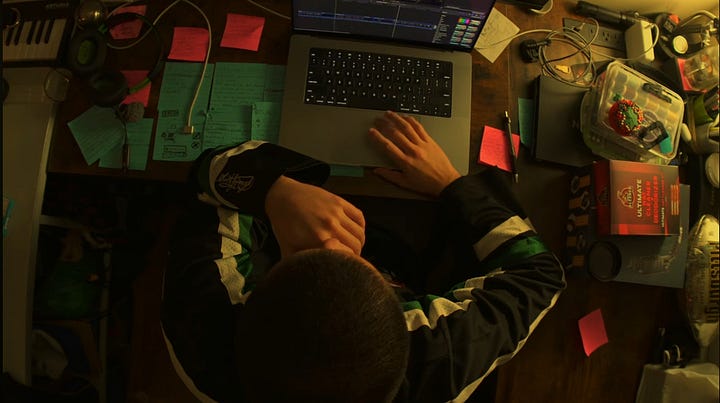
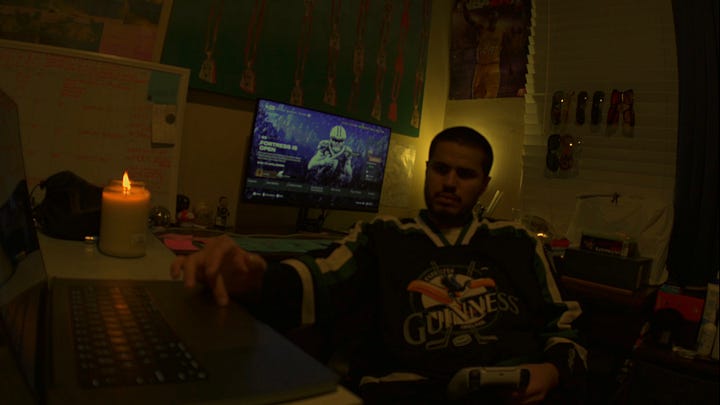
RAWB: The most crucial step to me is writing it all down, preferably on paper or on your phone if you have no choice, but [you] definitely have to set the idea in stone. I’ve had so many ideas I thought I would remember but never did, just because I told myself I would write it down, “When I wake up tomorrow,” or that I’m going to write it down “When I’m done showering.” Always write down your ideas. It doesn’t matter where you’re at. I don’t care if that shower floor gets all wet. Make sure that idea gets written down, or else you will forget. Other than that, the next important step is execution. All my ideas don’t come to life unless I get up off my ass and execute. Even if I’m not feeling confident in my ability to do so, I still make myself show up. The most beautiful, amazing things that have ever happened to me in life were because I decided to show up, which is crucial in the development of a project. [There are] A lot of missed opportunities between artists and I just because they didn’t show up. I, myself, am even guilty of not showing up, and I paid a price for that, but all I can do now is learn from it, show up, and execute.
During pre-interview research, I noticed your motto, “Create the world you live in.” What does this mean to you? How does this statement look in action when it’s applied to your work?
RAWB: I wish I remembered where I got the quote from, but “Create the world you live in” spoke to me much differently than any other quote you see on social media because I truly believe that whatever you put into this world, you get back tenfold. If you think you’re living in hell, your world and entire life experiences will be hell and vice versa. If you genuinely believe this is heaven on earth, I guarantee your experiences will change dramatically. That change of perspective is a big part of how I got myself out of that dark place in my life in 2019 and 2020. This motto I live by has been essential to executing my work. This quote reminds me that I can make it happen. I recorded and edited my first seven music videos on my iPhone. This motto has brought me to a new community filled with positive experiences and incredible, creative people I admire.
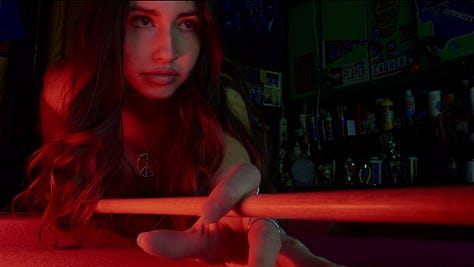
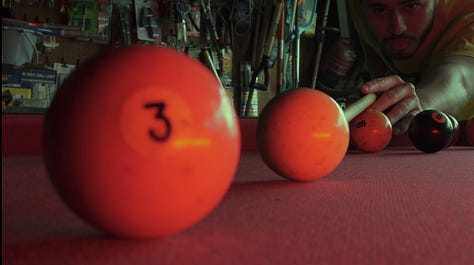
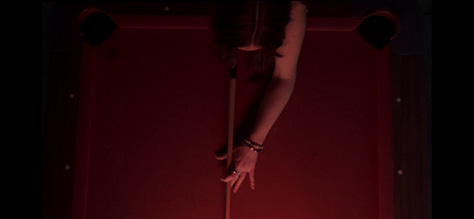
Playing off of this slogan. If you could create a world where no matter what direction you pointed a camera in—it would be a perfect shot. What would this world look like? Is it an urban environment or a cityscape? What is this world filled with?
RAWB: This perfect shot would be dense. It is filled with symmetry, chaos, and a mix of colorful but grunge surroundings. Characters [that] are filled with expression and body language, all telling a story, but a story that can be up for interpretation. It would be set in a New York City-like environment, showing positive and negative situations a human being might experience.
Are there cinematographers that inspire you?
RAWB: There’s a handful of cinematographers that inspire me, but there are three that have influenced me the most. I’ll start with “AMD Visuals.” First of all, I literally copied a part of his name—I didn’t know what to call myself then. I needed to add something after RAWB to let people know I was a videographer, so I copied him because he was the cinematographer I was most inspired by at the time. I love how he combined cinematography with a run-and-gun filming style. I could tell he was just being spontaneous with all his locations. It almost felt like, yeah, he was a top dawg videographer, but it still seemed like he was having fun. He didn’t go completely Hollywood on himself, you know?
RAWB: The next cinematographer that comes to mind is “HidjiWorld.” No doubt in my mind, he’s the best one out here really doing this. His work is out of this world. It almost seems unreachable to me. I pray and hope I can become half as good as him one day. If I tried to explain how much of a master class he is with his work, I’d probably be typing all day, and if you haven’t seen his work, I’d go tune in. Then you have “Pietro Biz Biasia.” He’s a new favorite of mine that I enjoy watching. I truly feel like he’s changing the game, implementing mind-blowing masking effects and incredibly creative shots. I’d love to get the chance to work with him. He’s really on the way to being the greatest ever.
If you had a cinematography antagonist—in other words, an archnemesis—for your work, what would their characteristics be? What would their filmmaking style look like?
RAWB: I honestly don’t believe I can answer this question. I’ve thought about this for a few days now, trying to put my filmmaking style into a category to try and make up an antagonist version of myself, but I can’t. I feel I can do it all. I know I can do it all because I’ve done a variety of edits and films in different styles. The last music video I directed was colorful and fun—not so serious—and now I have another music video in the works that will be dark and grunge. There’s just no way I can create another version of myself when I am all types of versions of myself.
What is your most controversial cinematography take?
RAWB: Not sure if this one is controversial; I’m sure some people might agree with me, but I believe you don’t need an expensive camera or lens to pull off great cinematic shots. I think people take cinematography too seriously, therefore making it “played out” in a way. Usually, the students of the game are the ones who impress me with their creativity—rarely the experts. [The] people who have been doing this for a long time can get stuck in their ways a little and lose creativity. It’s almost like their minds are on cruise control, now only going by the book.
The first video camera was invented in 1888 by Louis Le Prince. If you had to direct a video for someone who existed before then, who would that person be? Why would it be them? Why are they significant to you?
RAWB: It would have to be Shakespeare. I feel like that's a no-brainer. If he had been given this crazy piece of technology to create his plays in a three-dimensional digital format where he could practice angles and take as many takes as he liked, I feel like he would have become obsessed with filmmaking. I would be very curious to see what he could do creatively with that equipment. Shakespeare was a revolutionary and versatile storyteller. In a way, he’s one of the reasons, if not the reason, why storytelling and films have evolved to the way they are now.
What is your ethnicity? Does it play any part in your identity as a filmmaker?
RAWB: I am a third-generation Mexican American. I want to think it doesn’t play any part in my identity. I don’t think about race or ethnicity when talking to filmmakers, networking, or posting on media platforms. It just doesn’t matter to me at all. I don’t want to consider my ethnicity as a factor when trying to become a high-class filmmaker. It feels irrelevant. And I know some people might feel disappointed in what I’m saying, probably expecting me to have some Latino pride, but as cliche as this might sound, I don’t see color when I meet people, let alone expect people to see me as a certain color. Now, I’m not saying I don’t respect my culture. I love how cultures can evolve and birth character and tradition. It’s the reason why I am the person I am today. I’m just saying my race doesn’t make me better or worse than the next person. It’s my work ethic that speaks for itself.
RAWB’s excitement about this interview greatly surprised me, and he was tremendously helpful in refining some sort of interview process. I am very thankful to him for giving me this opportunity.



